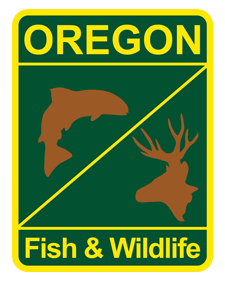Fish Report for 2-24-2017
Online reporting for licensed furtakers
by ODFW
2-24-2017
Website

ODFW launched an online reporting system earlier this year to make it easier for Oregon’s licensed furtakers to report the results of their season and confirm their report has been received. The online reporting system can be found at the Furbearer Hunting and Trapping page.
Furtakers are licensed to hunt, trap, and pursue furbearers such as beaver, bobcat, marten, mink, muskrat, river otter, raccoon, red and gray fox and unprotected mammals such as coyotes, nutria, skunks, and opossums under authorized seasons. Furtakers must report the results of their season by April 15 each year, providing details on the number of furbearers harvested, nights they spent trapping or hunting, number of animals released, and other information. Furtakers who fail to report on time can’t get a license the following year until they submit the late report and pay a $50 late fee.
Thanks to furtaker reports, ODFW gets information which helps the department monitor and manage 17 wildlife species. “Without these reports, little would be known about many of these species,” says Derek Broman, ODFW furbearer program coordinator. “For example, muskrats are a good indicator species for wetland health, and furtakers are very in tune with how this species is doing in Oregon.
“Furtaker reports also give us a sense on whether non-native invasive species populations like nutria and opossum are increasing, decreasing or stable,” Broman added.
Furtakers that supply an email address will be sent confirmation that their report was successfully submitted and received, whether submitted online or by mail. (An email address can be provided when reporting a furtaker harvest online, when submitting a paper report, or when purchasing any ODFW license or document.)
Oregon has about 2,500 licensed furtakers. Furbearer hunting and trapping is a highly regulated activity in Oregon. Before becoming licensed, furtakers must pass an education course that deals with topics like wildlife identification, trapping ethics, and setting traps so they catch target animals in the most humane fashion. Regulations designed to promote the humane treatment of trapped animals make it unlawful to use certain types of traps. Traps are also prohibited from being set near trails, trailheads, campgrounds, and picnic areas.
Most furbearer hunting and trapping occurs in the winter and many seasons close in early spring, but some furbearers have an open season year round. If you are interested in becoming a trapper, email ODFW’s Education Department at [email protected] for a copy of the home-study course required to obtain a license.
For more information, see the Oregon Furbearer Trapping and Hunting Regulations and the Hunting and Trapping Furbearers page.
More Reports
OR Department of Fish & Wildlife Reports
for Friday, February 24th, 2017Willamette River: ODFW on Willamette River samon
ODFW seeks volunteers for Access and Habitat Board

2-23-2017
Applications are currently being accepted for one Landowner Representative opening on the statewide Access and Habitat Board. The South Willamette,...... Read More

Website Hosting and Design provided by TECK.net